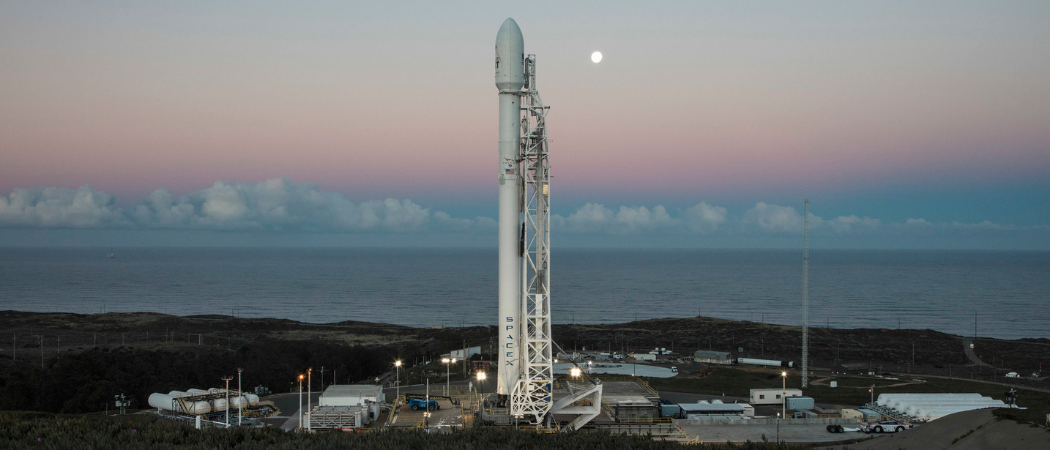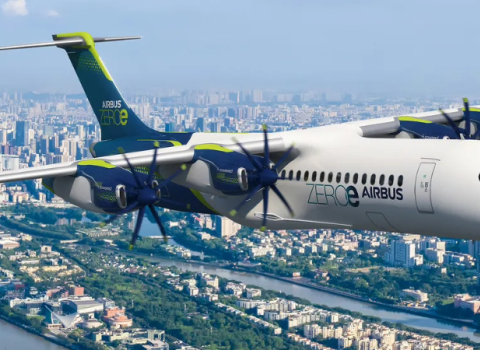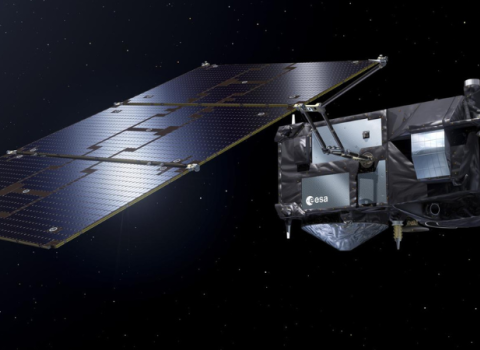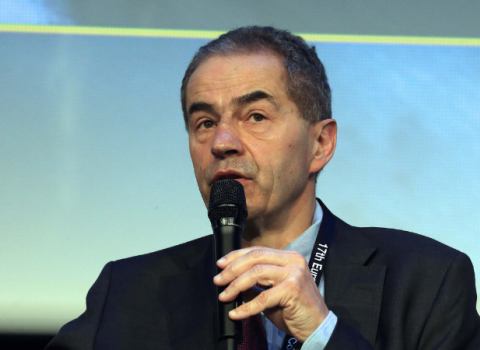As it lines up for its inaugural flight, the Ariane 6 rocket has a big setback, losing a contract to launch a European weather satellite

SpaceX’s Falcon 9 rocket at Space Launch Complex 4E at Vandenberg Air Force Base, California. Photo credits: Official SpaceX Photos / Flickr
The space sector has hit back at a decision to award Elon Musk’s SpaceX the contract to launch Europe’s next weather satellite, calling it “unacceptable” and saying it is a threat to Europe’s strategic autonomy.
SpaceX was awarded the contract despite the body responsible, the European Organisation for the Exploitation of Meteorological Satellites (EUMETSAT), previously signing a contract for four launches using Ariane 6, the rocket developed by French company Arianespace for the European Space Agency (ESA).
The decision is the latest setback for Ariane 6, which is poised for its inaugural take-off from French Guiana on Tuesday. After four years of delay, a successful launch could finally bring an end to Europe’s launcher crisis, which has seen it denied independent access to space.
Last Thursday, French MEP Christophe Grudler said he had written to the 30 national delegations represented in EUMETSAT to ask them to reverse the decision, which is “unacceptable”, he said.
“If European organisations do not themselves apply European preference in their launches, we can say goodbye to thousands of jobs in Europe and to our strategic autonomy,” said Grudler. A Renew MEP, he has actively contributed to space files as a member of Parliament’s ITRE industry committee.
It is “difficult to understand” why EUMETSAT did not wait for the inaugural flight of Ariane 6 before making its decision, said ESA director general Josef Aschbacher. “The end of the launcher crisis is within reach. Now is the time for Europe to support autonomous access to space, which is on the horizon,” he said.
“Today is a very disappointing day for European space efforts,” said Philippe Baptiste, chair and CEO of the French space agency CNES. “The technical conditions were met for a launch on Ariane 6 and the launcher was indeed available. I am impatiently waiting to understand what reasons could have led EUMETSAT to such a decision, at a time where all major European space countries as well as the European Commission are calling for [the] launch [of] European satellites on European launchers,” he said.
EUMETSAT told Science|Business it is unable to comment on the decision due to contractual obligations. Arianespace also declined to comment.
In a statement announcing the decision, EUMETSAT director general Phil Evans blamed “exceptional circumstances”, saying, “It does not compromise our standard policy of supporting European partners, and we look forward to a successful SpaceX launch for this masterpiece of European technology.”
“The launch service contracts for the upcoming MTG-I2, Metop-SGA and Metop-SGB satellites remain with Arianespace [which] continues to be our long-standing and trusted launch partner,” EUMETSAT said when it announced the SpaceX deal.
Weather watching
In advance of these launches, the MTG-S1 satellite to be launched by SpaceX will bring about a “revolution” in climate monitoring in Europe and Africa. It will provide national weather services with more accurate data and make it possible for the first time to observe the full lifecycle of a convective storm from space.
The decision to award SpaceX the contract to launch MTG-S1 came as a surprise because it was announced just two weeks before Ariane 6 was scheduled to launch. However MTG-S1 will not be the first European satellite to be transported on the company’s Falcon 9 rocket.
In April, SpaceX launched two Galileo satellites for the EU’s navigation system, with two more scheduled for later this year. ESA also contracted the US firm for the launch of the Euclid space telescope last year, and the EarthCARE satellite in May 2024.
This reflects the reality of Europe’s launcher crisis in recent years, as delays to the Ariane 6 and Vega-C rockets, and loss of access to Russia’s Soyuz rockets, have left it without sovereign access to space. Falcon 9 is partially reusable, which has contributed to driving down launch costs.
The worst of the crisis may soon be over, but authorities want to ensure the continent can avoid similar situations in the future. Last month ESA invited launch providers to submit expressions of interest, with a view to launching a European Launcher Challenge in 2025. The idea is for the agency to procure launch services rather than owning its own space vehicles, and to stimulate a more competitive space sector.





 A unique international forum for public research organisations and companies to connect their external engagement with strategic interests around their R&D system.
A unique international forum for public research organisations and companies to connect their external engagement with strategic interests around their R&D system.